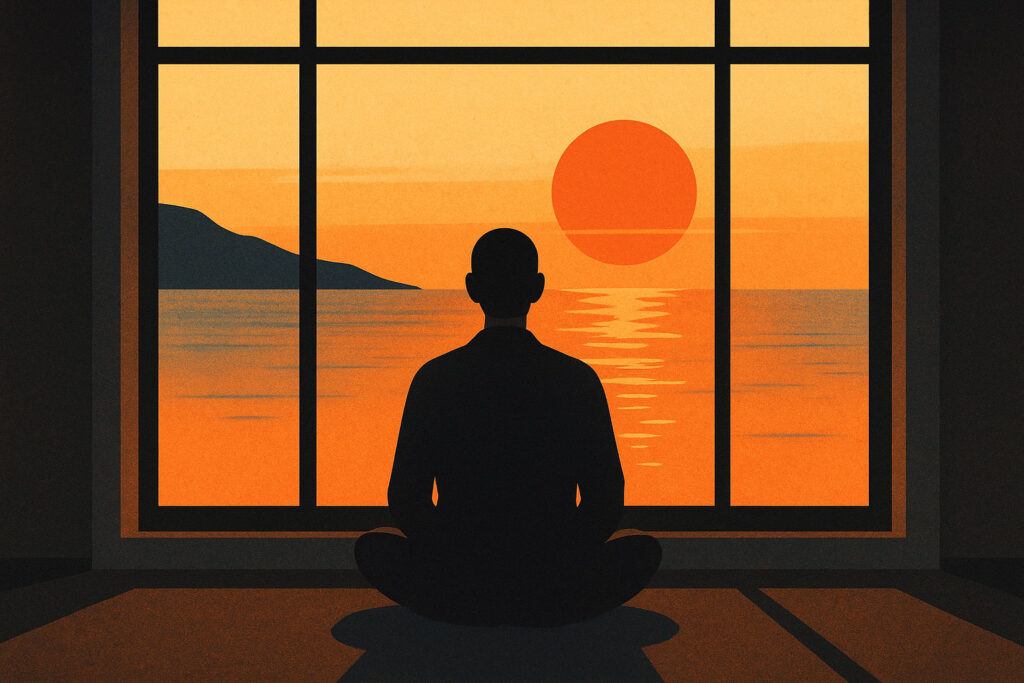
Breathing Your Way Back Home
A Buddhist parable of a blind turtle inspires reflection on life’s rarity, balancing samsara’s struggles with presence and spiritual homecoming.

A friend of mine gave me a new word and a new concept to add to my collection this week: Amyloid. Anytime I hear a word I don’t know, my ears perk up and I am always curious about the meaning. Turns out there is a physiological process that happens in our brain every night when we sleep. When we enter deep sleep, or slow-wave sleep, our bodies utilize cerebral spinal fluid to flush the brain of waste products. In this nightly brain cleaning, amyloid proteins, essentially malformed proteins, are cleared from the channels of our brain using the glymphatic system. This is very similar to our lymphatic system that uses our lymph nodes to help remove bacteria, viruses and cancer cells. When we don’t get good deep sleep, these tau tangles and amyloid plaque build up and can lead to neurodegenerative disease such as Alzheimers. I found this concept all at once fascinating and slightly disturbing.
The importance of sleep is widely accepted as a foundational piece to our overall health and wellness. But the takeaway here for me was deeper than just getting proper nightly rest. When we provide optimal conditions for our bodies—including ideal sleep—all of our natural systems are able to function the way nature intended. This is exactly what we see in our cultivation practice with all of our plants. Our daily practice revolves around providing the optimal conditions for our plants which then allows all of their genetic expression to occur as nature intended.
When a plant is deficient in a key nutrient or stressed due to some environmental factor, plant health declines. In indoor cultivation, the flower cycle is founded in 12 hours of light and 12 hours of dark. This photoperiod of light is what drives the plants to shift hormonally into flowering. Recently, we had a malfunction with one of the lights in a room. The wiring became compromised and created a glitch that had one light flickering on and off after the lights were supposed to be dark in its 12 hours of “sleep.” This created a stressor for the plants and interrupted their natural cycle. Once we discovered the problem, the solution of course was very easy and we were able to get things back on track. But the plants were stressed as a result of the interruption of their night time dormancy and began shifting hormonally with significant biochemical responses to the interruption of their “sleep.”
The takeaway here is pretty clear. When a key system such as sleep is interrupted—for people or plants—there is a downstream effect that can undermine overall health. Take care of your sleep cycles and your body will naturally clear out biochemical waste and support longevity and mental health. Pretty simple.
But this wouldn’t be a Monday Meditation piece if we didn’t bring it back to one of my favorite elements in the Tibetan meditation tradition of the “cycles of day and night.” That is in fact the title of Namkhai Norbu’s famous doctrine on the integration of deep presence into our daily consciousness. At its core, the practice gets very heady when attempting to maintain presence and awareness at the moment we fall asleep. This is a foundational piece to the practice of dying with full consciousness. For many Buddhist communities, the meditation on death is a central focus for the practice: to enter the Bardo state—the liminal state between death and rebirth—with full awareness. While it is an advanced practice, it is nonetheless, a reminder that there are always levels of insight that we can pursue in our practice.
This week’s practice is very simple yet profound. In Bhutan they meditate on death three times a day. It is called Maranasati. It is a profound practice and part of the national focus on mindfulness. So this week on a ten count—three times a day—bring your awareness to your own death. Meditate on the impermanence of your life as if you as if you were ready to cross over to the next realm beyond this earthly plane. Breathing through it all, bring your awareness to all the gifts, all the joy, all of the love you have felt here. And ponder the fact that no one knows when or how they will die. We are here now and we have the gift of life.
And I will leave you with another gem of a poem from one of the great Indian writers Rabindranath Tagore. The last line is pure.
I know that the day will come
when my sight of this earth shall be lost,
and life will take its leave in silence,
drawing the last curtain over my eyes.
Yet stars will watch at night,
and morning rise as before,
and hours heave like sea waves casting up pleasures and pains.
When I think of this end of my moments,
the barrier of the moments breaks
and I see by the light of death
thy world with its careless treasures.
Rare is its lowliest seat,
rare is its meanest of lives.
Things that I longed for in vain
and things that I got
—-let them pass.
Let me but truly possess
the things that I ever spurned
and overlooked.

A Buddhist parable of a blind turtle inspires reflection on life’s rarity, balancing samsara’s struggles with presence and spiritual homecoming.

Pablo Neruda’s “Keeping Quiet” teaches stillness amid chaos, reminding us that silence, breath, and presence restore peace and balance.

Inspired by Rory McIlroy’s Masters win and local golf struggles, this meditation explores resilience, nerves, and the courage to persevere.